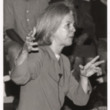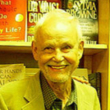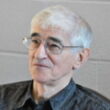The case for God
Description
More Details
9780307702371
9780307272928
9780307702401
Table of Contents
From the Book - First edition.
Excerpt
Similar Titles From NoveList
Similar Authors From NoveList
Published Reviews
Choice Review
This well-researched book argues the case for God (religion?) with insight into and understanding of what makes people religious--which the new atheists don't seem to understand. But Armstrong (independent scholar) also reminds religion's spokespeople that they should leave matters of the mind (e.g., explaining the world) to science, and concentrate on the experiential aspects of life where religions play an indispensable role. "The point of religion," Armstrong rightly observes, "(is) to live intensely and richly here and now." What makes this book particularly valuable is its survey of human attempts to grasp the transcendental from transcultural perspectives. Armstrong provides rich historical examples but also makes the case for a more enlightened approach to religion in the Christian framework. Whether there is a God or not is often determined in people's minds not by any proof or ontological validity, but by how persuasive the advocates and attackers of the God concept are for their respective stances. In this book Armstrong shows herself to be a good lawyer on God's behalf. Given the many anti-God books published in recent years by scientists and journalists, this book will be acclaimed by many religiously inclined people. Summing Up: Highly recommended. Upper-level undergraduates and above; general readers. V. V. Raman emeritus, Rochester Institute of Technology
Booklist Review
*Starred Review* The new book by the premier contemporary historian of religion is a history of God, from the implications of the cave paintings of Lascaux, through pagan and Eastern religions (with and without gods), through the pre-modern understandings of the great monotheisms, to the God and the reactive atheism of modernity. Armstrong stresses that the most common response to questions about God has been silence. This is the apophatic perspective, which holds that God is beyond words, a reality that eludes measurement, specification, even conception. This reality was apprehended by means of rituals such as those practiced by the mystery cult at Eleusis, 20 miles from ancient Athens, and is expressed by the famous I am what I am in Moses' encounter with the burning bush, which, Armstrong explains, was equivalent to Never mind who I am because the nature of God was beyond discussion. Indeed, until the modern period, she reveals, belief in the religious sense didn't mean assent to a creed or doctrine but trust in, commitment to, and active engagement with truth that cannot be spoken. The definite God of modernity especially the hyperdefined God of fundamentalism and its complement, atheism, are nineteenth- and twentieth-century developments reflecting the materialist rationality of science and technology. Perhaps post-modernism's corrosive effect on all certainties can help revitalize religion in the twenty-first century. Presenting difficult ideas with utter lucidity, this registers at once as a classic of religious and world history.--Olson, Ray Copyright 2009 Booklist
Library Journal Review
Armstrong offers a tour de force study of religiosity that expands on themes in her previous titles A History of God and The Great Transformation. Armstrong contrasts the "unknown God" of 30,000 B.C.E-1500 C.E. with the modern God (1500 C.E.-present) and burgeoning European atheism. Today, religion is supposed to provide answers, but in earlier times, faith functioned like art and was a source of joy and serenity in the face of mystery and challenges. Verdict Highly recommended for readers willing to grapple with difficult but clearly articulated concepts and challenges to the "received" ways of perceiving religion. A classic book addressing some of the same issues is Wilfred Cantwell Smith's The Meaning and End of Religion. [See Prepub Alert, LJ 5/1/09.]-Carolyn M. Craft, Longwood Univ., Farmville, VA (c) Copyright 2010. Library Journals LLC, a wholly owned subsidiary of Media Source, Inc. No redistribution permitted.
Kirkus Book Review
Fascinating journey through Western civilization's ongoing attempts to understand and explain the concept of God. Celebrated religion scholar Armstrong (The Bible: A Biography, 2007, etc.) creates more than a history of religion; she effectively demonstrates how the West (broadly speaking) has grappled with the existence of deity and captured the concept in words, art and ideas. Beginning in the majestic caves of Lascaux, Armstrong explores how religion became a meaningful part of prehistoric societies, and the ways in which these societies passed down their practices and ideas in the earliest forms of art. The author then moves on to early monotheism and its rivals, offering a brilliant examination of ancient Greek views on religion and reason, which laid the groundwork for so much of Western thought. Looking at the early Christians and Diaspora-era Jews in tandem, Armstrong delves into Talmudic study and midrash, as well as Christian adaptations of theological concepts. Throughout the book, the author argues against religion as an abstraction, noting that it most truly exists in practice. "Faithwas a matter of practical insight and active commitment," she writes. "It had little to do with abstract belief or theological conjecture." Nevertheless, scholars have always attempted to define and "prove" God, and Armstrong admirably outlines the best of them through the centuries, including Origen, Anselm, Pascal and Tillich. Armstrong claims that the "warfare" between science and religion is a myth perpetuated by those with axes to grind. Likewise, the modern atheist movement, "death of God" theology and even fundamentalism arise from extremists who see religion as correct doctrine, not correct praxis. Though mostly focused on the West, Armstrong maintains a global perspective, masterfully weaving in her solid understanding of the world's panoply of faiths. Accessible, intriguing study of how we see God. Copyright Kirkus Reviews, used with permission.
Booklist Reviews
*Starred Review* The new book by the premier contemporary historian of religion is a history of God, from the implications of the cave paintings of Lascaux, through pagan and Eastern religions (with and without gods), through the pre-modern understandings of the great monotheisms, to the God and the reactive atheism of modernity. Armstrong stresses that the most common response to questions about God has been silence. This is the apophatic perspective, which holds that God is beyond words, a reality that eludes measurement, specification, even conception. This reality was apprehended by means of rituals such as those practiced by the mystery cult at Eleusis, 20 miles from ancient Athens, and is expressed by the famous "I am what I am" in Moses' encounter with the burning bush, which, Armstrong explains, was equivalent to "Never mind who I am"—because the nature of God was beyond discussion. Indeed, until the modern period, she reveals, belief in the religious sense didn't mean assent to a creed or doctrine but trust in, commitment to, and active engagement with truth that cannot be spoken. The definite God of modernity—especially the hyperdefined God of fundamentalism—and its complement, atheism, are nineteenth- and twentieth-century developments reflecting the materialist rationality of science and technology. Perhaps post-modernism's corrosive effect on all certainties can help revitalize religion in the twenty-first century. Presenting difficult ideas with utter lucidity, this registers at once as a classic of religious and world history. Copyright 2009 Booklist Reviews.
Library Journal Reviews
What God has meant to us and what God continues to mean. Armstrong is always important; even atheists will want to read this one. With a six-city tour. Copyright 2009 Reed Business Information.
LJ Express Reviews
Armstrong offers a tour de force study of religiosity that expands on themes in her previous titles A History of God and The Great Transformation. Armstrong contrasts the "unknown God" of 30,000 B.C.E-1500 C.E. with the modern God (1500 C.E.-present) and burgeoning European atheism. Today, religion is supposed to provide answers, but in earlier times, faith functioned like art and was a source of joy and serenity in the face of mystery and challenges. Verdict Highly recommended for readers willing to grapple with difficult but clearly articulated concepts and challenges to the "received" ways of perceiving religion. A classic book addressing some of the same issues is Wilfred Cantwell Smith's The Meaning and End of Religion. [See Prepub Alert, LJ 5/1/09.]-Carolyn M. Craft, Longwood Univ., Farmville, VA Copyright 2009 Reed Business Information.


































